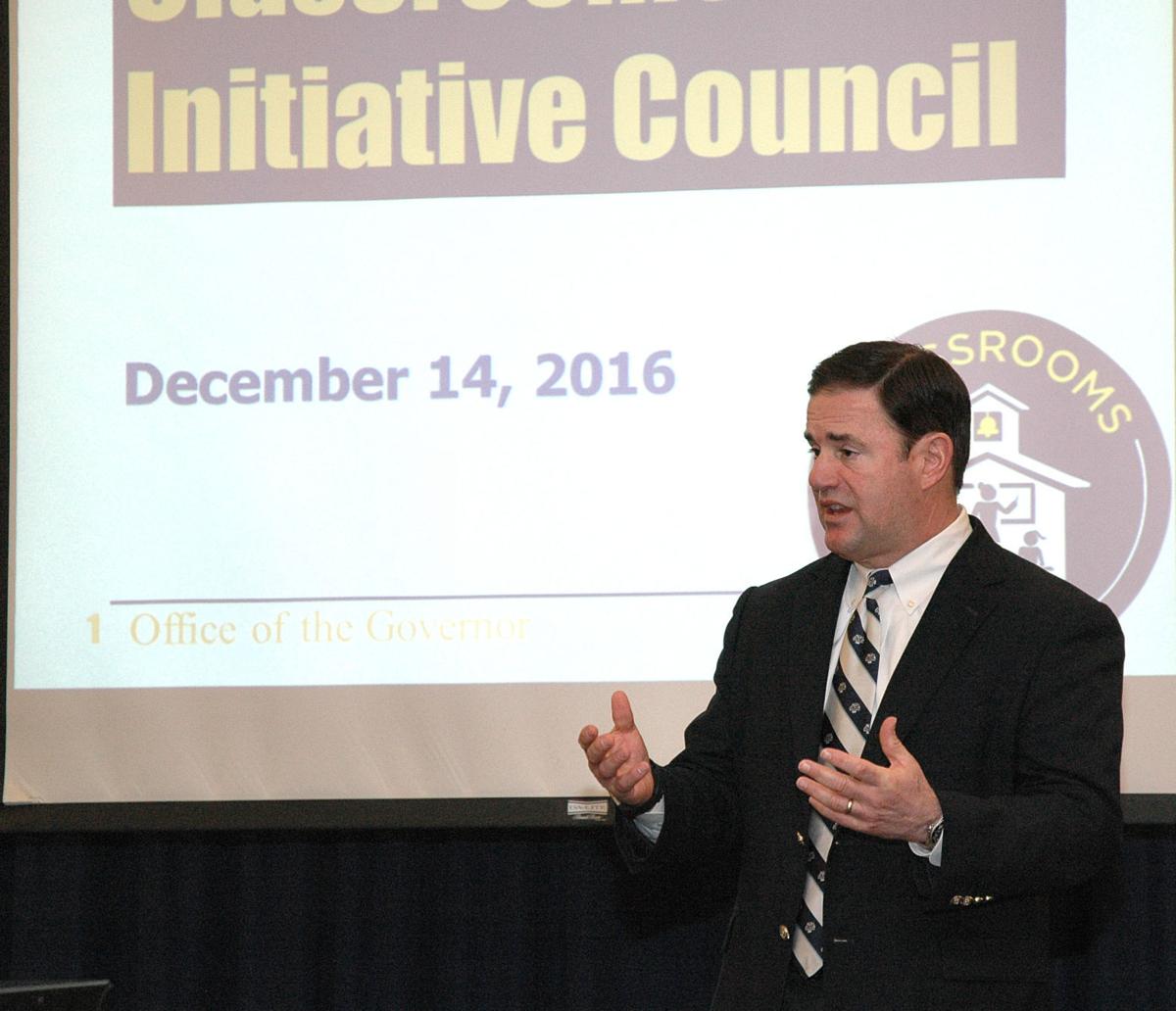PHOENIX — Just a year after settling one education funding lawsuit, state lawmakers face a new one, this one over what challengers say is their failure to build and properly maintain public schools.
The lawsuit, set to be filed Monday, is based on claims the Legislature is effectively ignoring a 1994 ruling by the Arizona Supreme Court that said it is illegal to have taxpayers in each school district solely responsible for school construction. The net effect, the justices said, was to create an unequal and unconstitutional system of rich and poor districts.
After several failed attempts, lawmakers finally approved a plan that was supposed to have the state pick up the responsibility. But the schools that are filing suit contend the Legislature has not provided adequate funds in years.
Chuck Essigs of the Arizona Association of School Business Officials estimates the state has shorted schools more than $2 billion since 2009.
“Those cuts have never been restored,’’ said Heidi Vega, spokeswoman for the Arizona School Boards Association.
“State leaders have ignored this obligation far too long,” Vega continued. “They have lost this fight once and it is time to step up and adequately fund public schools according to the law.”
The result, according to school officials, has been to throw the financial burden back on local districts whose voters have had to borrow money for what should be a state responsibility — precisely the situation the Supreme Court found unconstitutional in 1994.
Gubernatorial press aide Daniel Scarpinato said his boss is focused now on getting approval for a new state budget and had no immediate comment.
But Ducey’s budget in prior years has never fully funded the formula that is supposed to pay for construction and repairs. And even with an improving economy, the governor proposes just $17 million for the coming budget year for school capital needs.
Under the system in place before 1994, school districts raised and borrowed money for new construction and repairs through local property taxes.
That year the high court said doing so created illegal disparities between rich districts and poor ones. The justices declared the funding system illegal but refused to impose their own solution, directing lawmakers to come up with a cure.
In 1996, the Legislature agreed to put $100 million into a special fund that could be tapped by poor districts for construction needs. Lawmakers also agreed to provide another $30 million a year for nine more years.
The Supreme Court found that plan flawed, too, saying it still did not meet the constitutional requirement for a “general and uniform” school system.
Lawmakers eventually created the School Facilities Board, which was supposed to pick up every district’s construction needs.
But a new source of revenue to fund the potential $300 million annual price tag was never identified, and instead the cost was absorbed into the general fund.
That, however, worked only when the economy was good and revenues were increasing. When the Great Recession hit and state tax collections tanked, one of the casualties was money for the facilities board.
The result has been that local districts that need schools or major repairs but can’t wait for a state grant again have to turn to their local voters for bond approval. That brings the funding system back to what the state Supreme Court previously found illegal.’
The schools and groups that are filing suit are not the only ones who have noticed the lack of funding.
Earlier this week, state schools chief Diane Douglas proposed boosting the current 0.6 of-a-cent state sales tax for education to a full penny. While $300 million of that would go each year to teacher salaries, Douglas said $100 million annually would help address the unmet capital needs.
Among the plaintiffs is the Arizona Education Association. President Joe Thomas said it would be nice if lawmakers agreed to a settlement rather than dragging the case through the courts, as what happened decades ago. “We’ve got district schools that need this money,” he said.





